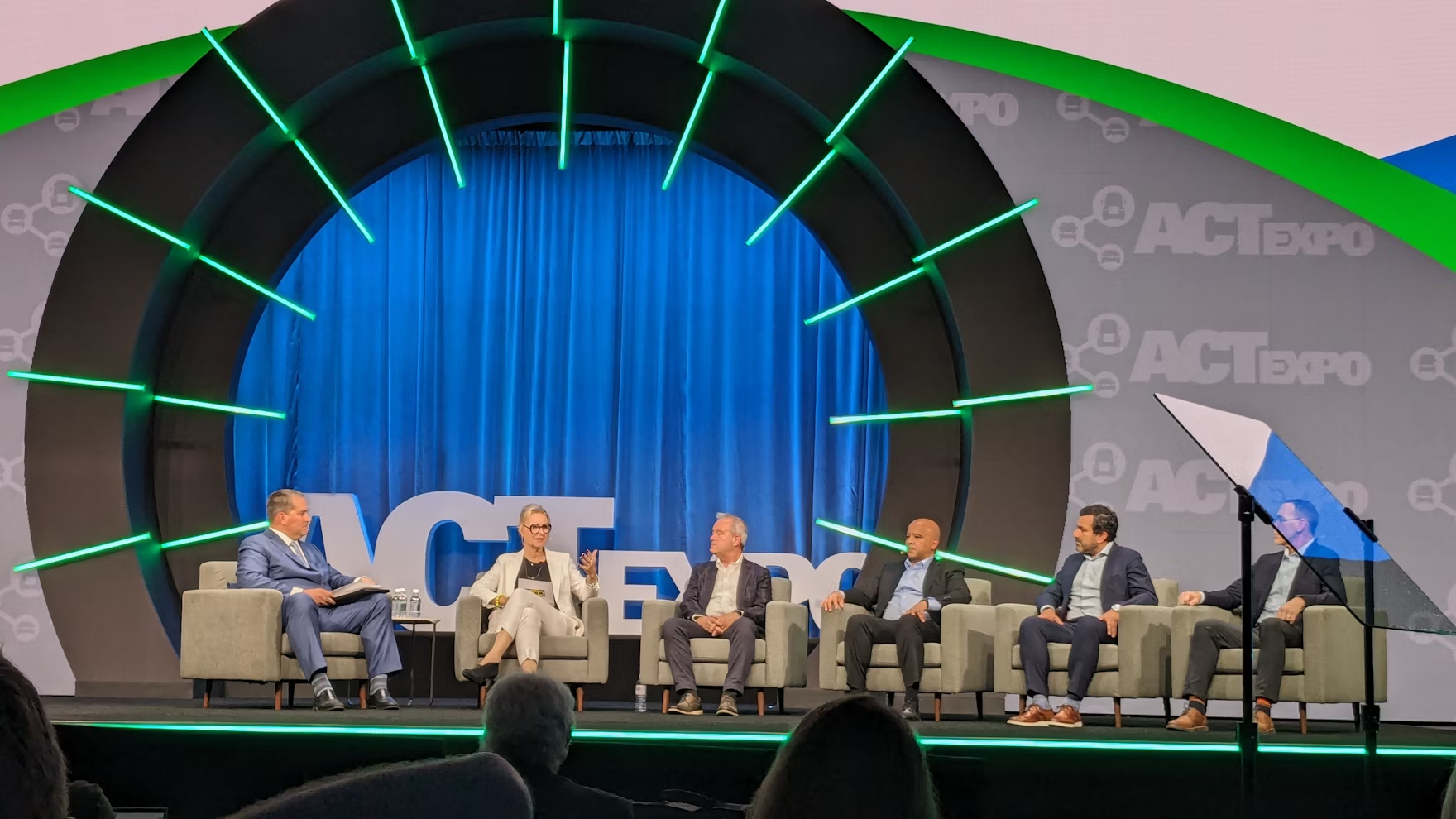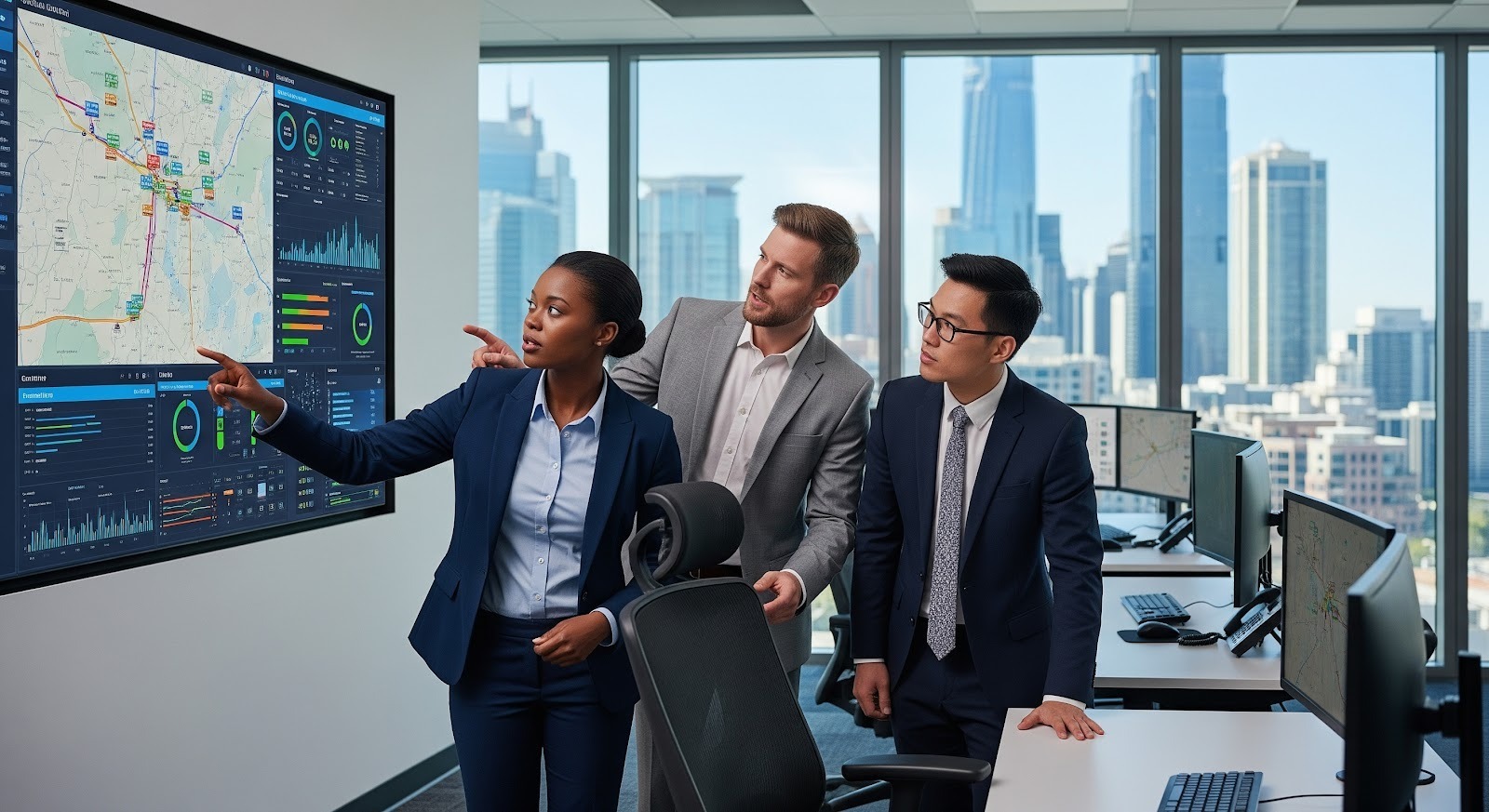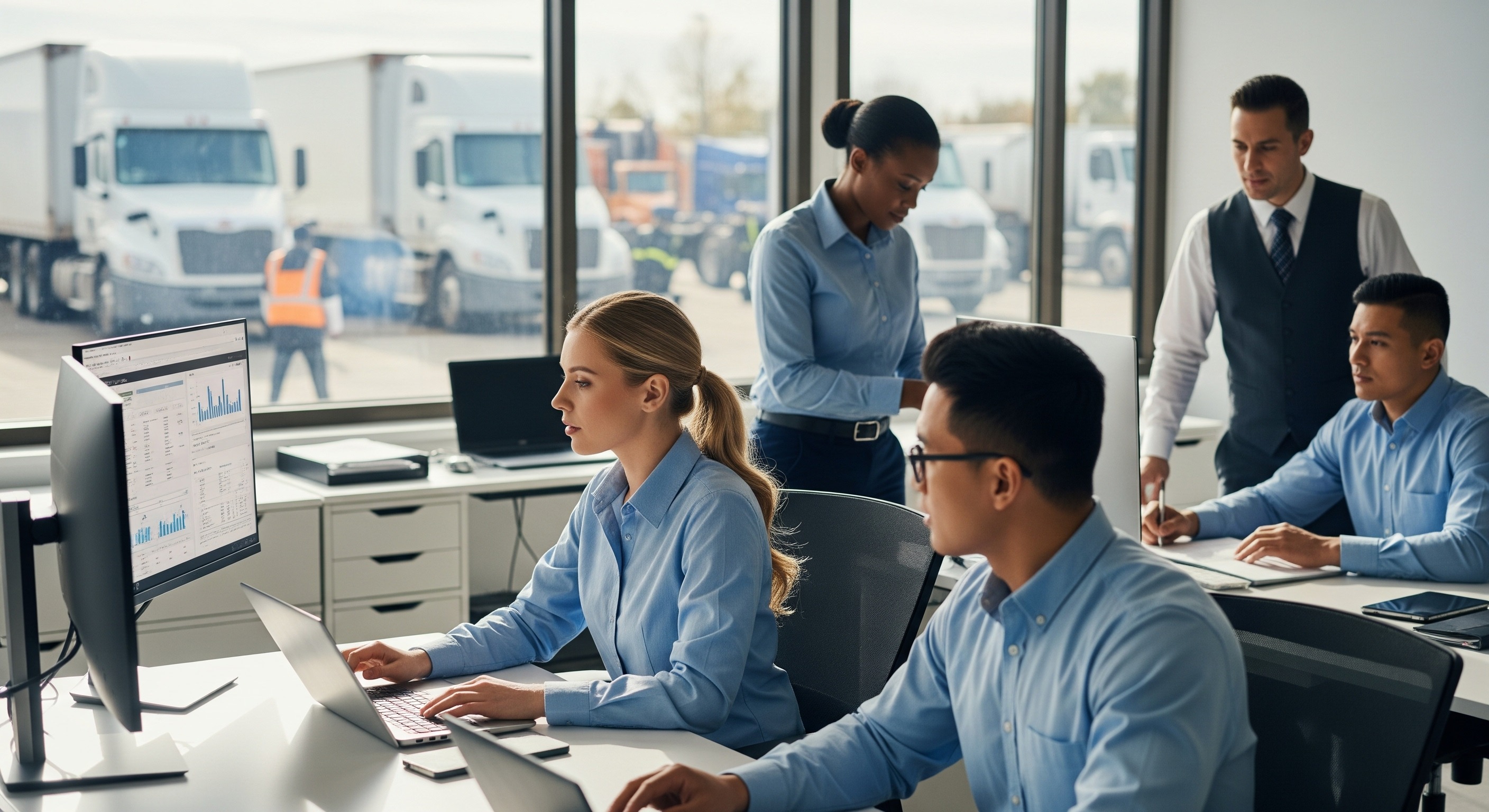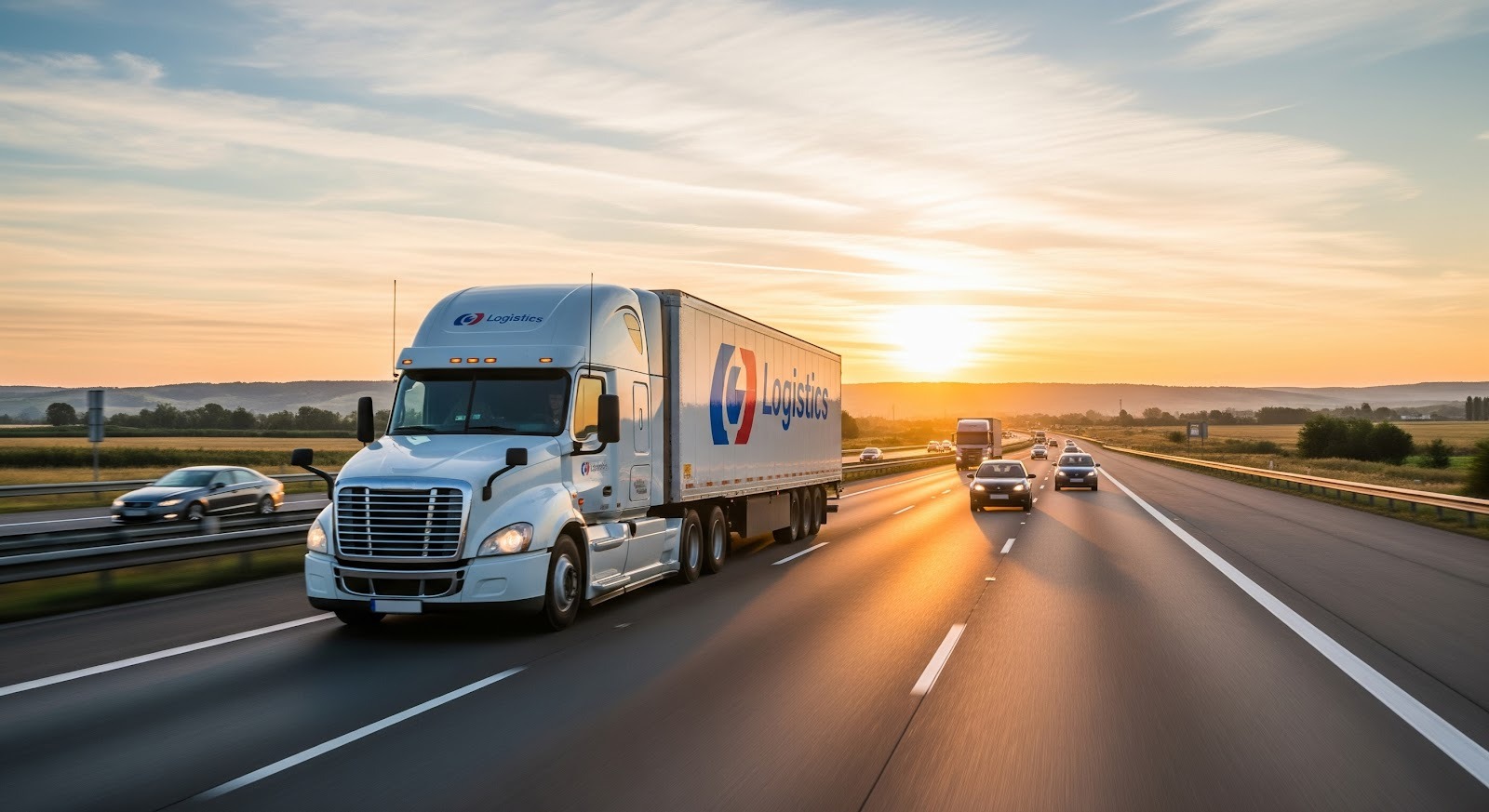Commercial Fleet Management: Strategies, Tools & Tips
Commercial fleet management plays a vital role in keeping businesses running smoothly, especially in industries like transportation, logistics, and...
Keep an eye on the road
Simplify your driver's routine
For efficient decision making
Ensure the compliance of your fleet
Simplify the daily life of your drivers
Maximize the value of your data
Unparalleled monitoring of your assets
The friendly competition that pays off
Planning powered by data
Exceed your customers' expectations
Provide better service to your users
Maximize the satisfaction of your citizens
Simplify your daily life on the construction site
Facilitate the electrification of your fleet
Our experts meet your needs
Easily meet the standards
Improve the safety of your drivers
Protect your data and your fleet
2 min read
![]() Anthony Mainville
May 22, 2024 10:05:43 AM
Anthony Mainville
May 22, 2024 10:05:43 AM

Las Vegas, May 21, 2024 – The second keynote panel at Act Expo 2024, titled "Global Sustainability Trends in the Transportation Sector," brought together industry leaders to discuss the critical role of collaboration, data exchange, and infrastructure development in achieving sustainable transportation. Moderated by Erik Neandross, President, GNA, a TRC Company, the panel featured insights from Elisabeth Fauvelle Munck af Rosenschöld, Global Sustainability Manager, IKEA, Jim Monkmeyer, President of Transportation, DHL Supply Chain, Dan Purefoy, Chief Supply Chain Officer, Sysco, Javier Garcia Atique, Regional Head of Customer Delivery for Landside Transportation, Maersk and David Allen, Vice President and Chief Sustainability Officer, PepsiCo Foods North America
A significant highlight of the discussion was the emphasis on how fleets and their clients can collaboratively adjust pricing structures to absorb the higher costs associated with sustainable offerings while recognizing the enhanced value these bring. Elizabeth Fauvelle Munck of IKEA underscored the importance of making sustainability the default option, not a luxury. "Our customers expect us to be responsible and provide sustainable products without a premium," she stated. This sentiment was echoed by other panelists who noted that while the transition to zero-emission vehicles involves significant investments, the long-term benefits far outweigh the initial costs.
Collaboration across the supply chain emerged as a critical theme. "We are completely dependent on our transport service partners to share this journey and direction," said Fauvelle Munck. This collaborative approach extends to co-creating solutions that enhance efficiency and reduce emissions, integrating new technologies, and leveraging the expertise of various stakeholders.
Jim Monkmeyer of DHL highlighted the role of data exchange in making informed decisions. DHL uses SmartWay EPA data to measure the carbon impact of carrier selections, providing customers with a clear understanding of the environmental cost of their choices. "This has been eye-opening for our customers," said Jim Monkmeyer. "Some are now making selections based on lower carbon footprints, not just cost."
The panel also focused on the importance of a multi-energy approach and the development of robust infrastructure to support sustainable transportation. Javier Garcia Atique of Maersk discussed the need for a diverse energy portfolio, including electric, hydrogen, and renewable fuels, to meet various operational needs. "It's not just about one solution; we need a portfolio of options to ensure flexibility and resilience," he said.
Dan Purefoy of Cisco emphasized the role of infrastructure in scaling sustainable practices. Cisco's Riverside, California operation, with its 40 electric vehicles and 40 permanent chargers, serves as a flagship model for integrating electric vehicles into their logistics network. "We need partners who can scale with us and support a national network," he noted.
Despite the challenges, the panelists expressed optimism about the future of sustainable transportation. David Allen of PepsiCo highlighted the availability of low and no-carbon solutions across all vehicle classes, emphasizing the need for immediate action. "We can decarbonize now as we all take action," he said.
Javier Garcia Atique reflected on the progress made in recent years and the tangible impact of new technologies. "Seeing the real-world impact of our efforts is fascinating and motivates us to push further," he stated.
The keynote panel at ActExpo 2024 underscored the critical role of industry collaboration, data exchange, and multi-energy solutions in driving the sustainable transformation of transportation. With strong partnerships and a focus on developing robust infrastructure, the industry is well-positioned to overcome challenges and achieve long-term sustainability goals. The insights shared by the panelists highlight the path forward, emphasizing that while the journey may be complex, the collective efforts of all stakeholders will drive meaningful change.
Act Expo 2024 continues to serve as a vital platform for sharing knowledge, fostering collaboration, and showcasing the latest innovations in sustainable transportation. Stay tuned for more updates and insights from the event.

Commercial fleet management plays a vital role in keeping businesses running smoothly, especially in industries like transportation, logistics, and...

In fleet management, fleet compliance services play a much bigger role than just checking a box. They’re about keeping your drivers safe, your...

Trucking has always come with its fair share of challenges, from road safety and liability issues to managing fleet efficiency. As the industry...